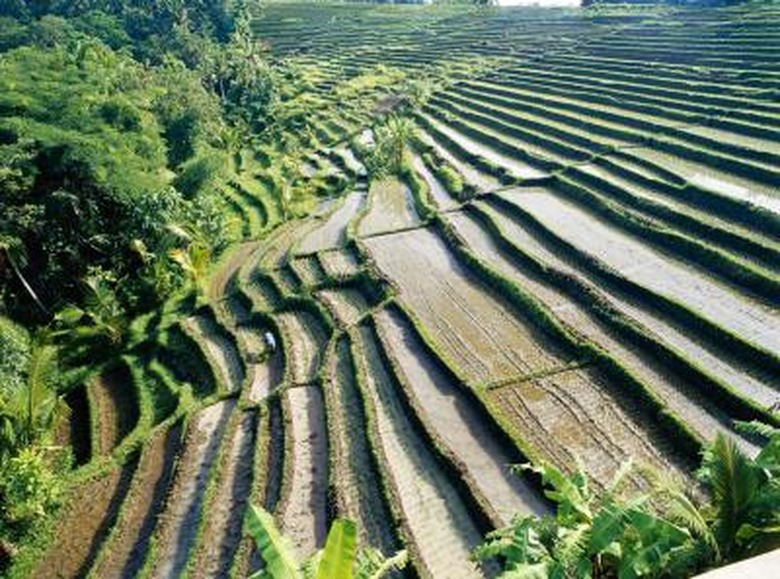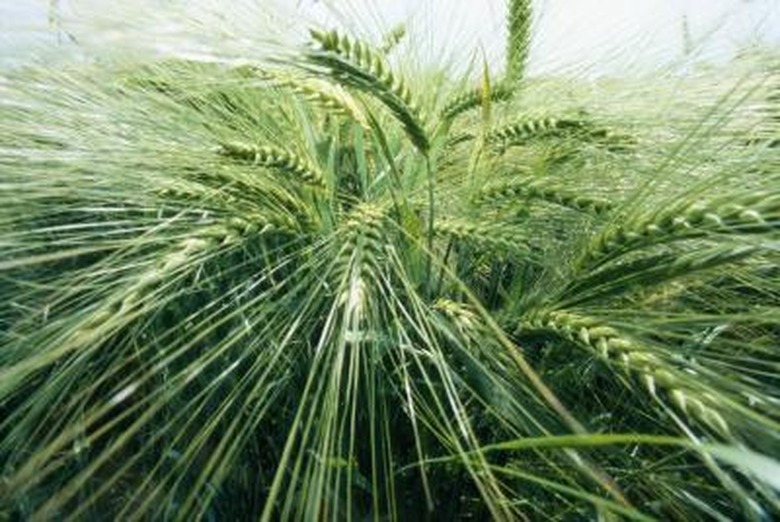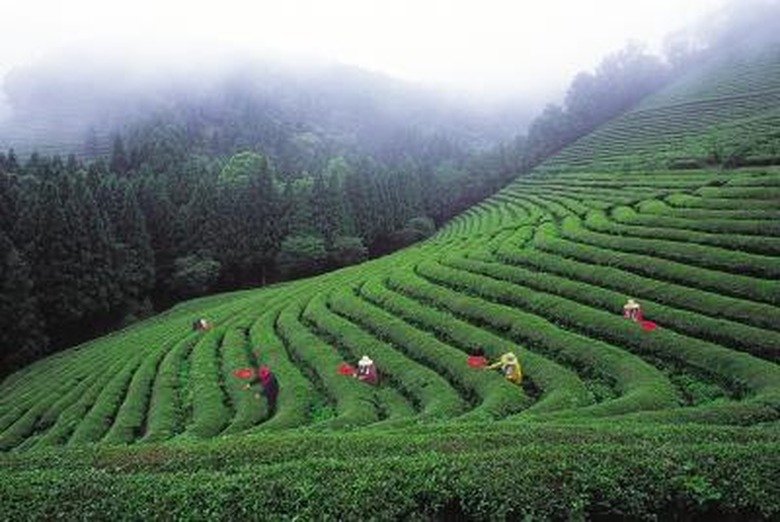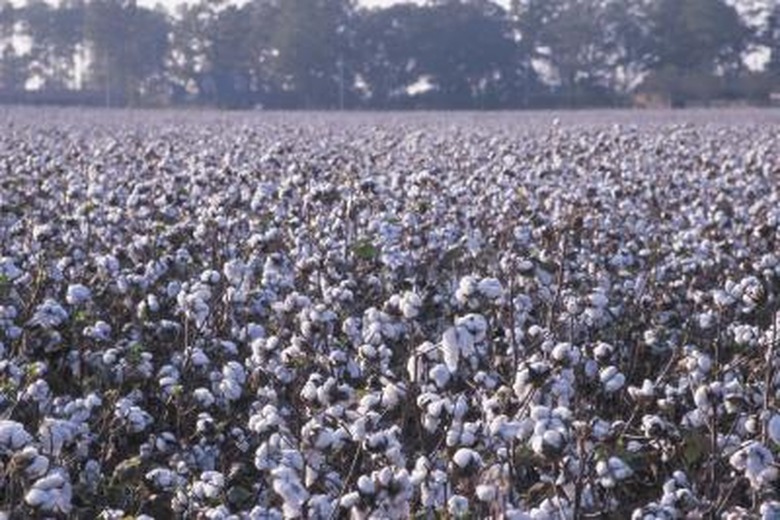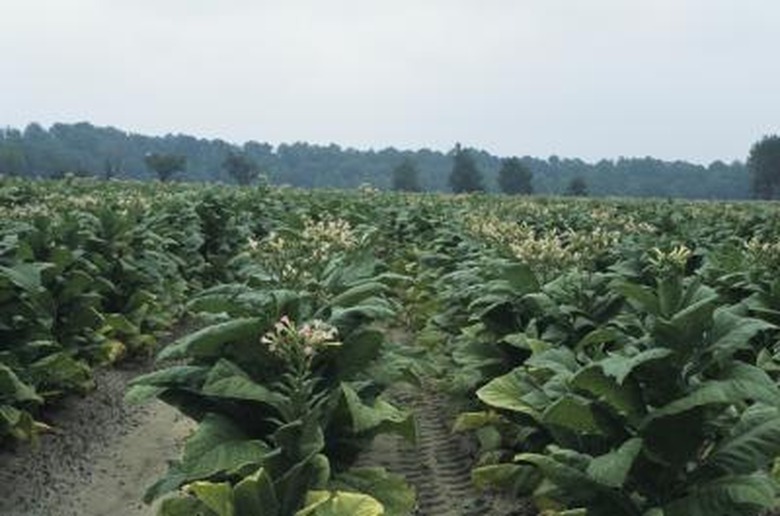Different Types Of Soil & Their Vegetation In India
Soils in India vary widely, having been formed by the various agents of weathering such as wind, water and temperature. Climate, composition of parent rock and even altitude play a role in the types of soil found in different parts of the country. Indian soils support varying kinds of vegetation, depending upon the mineral content, moisture-holding capacity and levels of acidity.
Alluvial Soil
Alluvial soil is found in the northern plains of India. Alluvial soil is rich in potash but poor in potassium and nitrogen. Nevertheless, it is a very fertile soil, which can support a wide variety of crops such as rice, wheat, cotton, jute and sugarcane.
Laterite Soil
Laterite soil is found in regions of heavy rainfall such as southern parts of the Western Ghats Mountain Range and in the Eastern Ghats Range in the state of Orissa. Heavy rainfall leaches this soil of silica, and a deficiency in potash, magnesium and lime makes it acidic. It is brownish to yellowish in color due to the presence of iron oxides. Tea, coffee, cashew, rubber and coconut grow well in laterite soil.
- Soils in India vary widely, having been formed by the various agents of weathering such as wind, water and temperature.
- Alluvial soil is rich in potash but poor in potassium and nitrogen.
Black Soil
Also known as regur soil, black soil is very good for growing cotton. It is dark gray to black in color. Its high clay content gives it excellent moisture-retention capacity. Black soil is rich in calcium, potassium and magnesium but deficient in nitrogen. Crops like tobacco, oilseeds, jowar, ragi and maize grow well in black soil.
Red Soil
Red soil is sandy and is formed due to weathering of crystalline rocks. It is poor in nitrogen, lime and phosphorus. However, it has a high amount of iron, which is why it is reddish in color. Red soil is found in the states of Tamil Nadu, southern parts of Karnataka and some parts of Madhya Pradesh, Maharashtra, West Bengal and Rajasthan. It supports crops such as groundnut, millet, tobacco, potato, rice, wheat and sugarcane.
- Also known as regur soil, black soil is very good for growing cotton.
Desert Soil
Desert soil is 90 percent clay. Hence, it has poor moisture content. It is also deficient in nitrogen and phosphorus but has high amount of phosphates and nitrates. This soil is found in Rajasthan and parts of Punjab, Haryana and Gujarat. Indian farmers grow hardy crops like millet and barley in desert soil.
Mountain Soil
Mountain soil is found mainly in the Himalayan region of the country. It is rich in humus but has lesser amounts of potash, phosphorous and lime. With the use of fertilizers, farmers grow tea, coffee, spices and Tropical fruits in this soil.
- Desert soil is 90 percent clay.
- This soil is found in Rajasthan and parts of Punjab, Haryana and Gujarat.
Other Types
The acidic nature of saline and alkaline soils, as well as peaty and marshy soils, make them unfit for agriculture.
